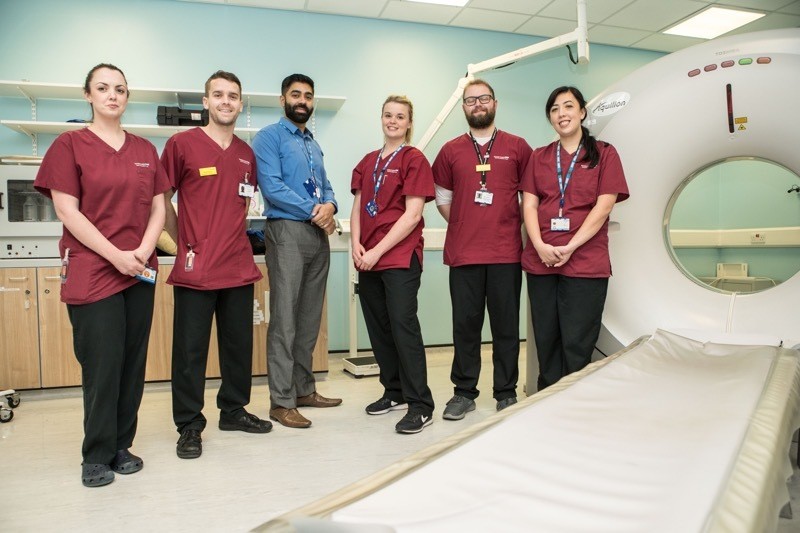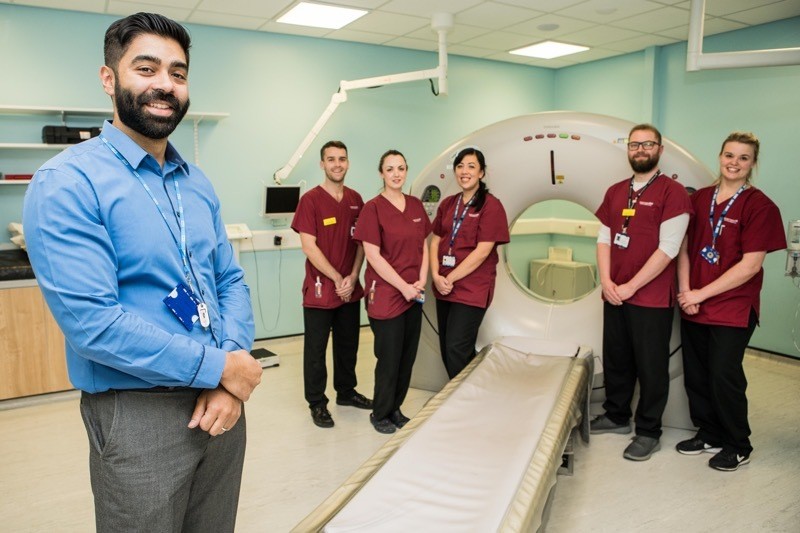BARNSLEY Hospital is to get two new life-saving scanning machines used to detect cancers and other illnesses as part of a cash injection totalling more than £1.6m, the Chronicle can reveal.
The MRI and CT machines - worth £1m and £650,000 respectively - will improve screening and early diagnosis of cancer as part of a nationwide commitment to ensure thousands more people survive cancer each year.
This new equipment also brings new capability for Barnsley’s doctors, with the machines enabled for artificial intelligence (AI) use.
The hospital’s lead radiographer, Liz Elfleet, told the Chronicle: “As a department we’re really excited about this. We currently have two CT scanners and this funding means one of them can be replaced with a state-of-the-art machine.
“These scanners take images through sections of the body and are of great benefit to cancer patients.
“The MRI scanner has broader uses as well but both new machines will be easier to use and it will be quicker to scan and construct images, reducing the need to re-scan.
“It is great that the hospital is getting this investment.”
Barnsley Hospital is one of 78 which will receive funding over the next two years as cancer - both locally and nationally - remains one of the biggest killers alongside heart and respiratory-related illnesses.
Cally Palmer, national cancer director at NHS England, added: “Cancer survival is at a record high thanks to better prevention, earlier diagnosis and world-leading treatments in the NHS.
“This major investment in the best modern scanning technology will benefit patients, helping us to achieve the NHS’s ambitions of catching tens of thousands more cancers earlier when they are easier to treat.”
Figures, revealed in Barnsley Council’s borough profile for 2019, show that residents are now expected to stay healthier for substantially longer than in the past with average life expectancies of 81.9 years for women and 78.2 for men.
However, there were 1,727 deaths in the town classed as ‘avoidable’ between 2014 and 2016, working out at a rate of 242.9 per 100,000 people - 13.6 per cent higher than the national average for England of 213.9.
Avoidable deaths are classed as deaths from causes that are considered treatable - such as many forms of cancer - in the presence of ‘timely and effective healthcare’ or ‘public health interventions’.
Julia Burrows, Barnsley’s director of public health, said: “We know that a huge part of the burden of ill health is avoidable. About a third of all deaths are classed as premature.
“By working with our local partners and communities we can help reduce the risk of people having their lives shortened by conditions such as cancer, heart disease, respiratory disease and diabetes.”





























